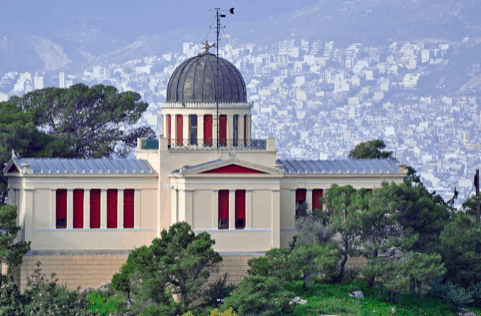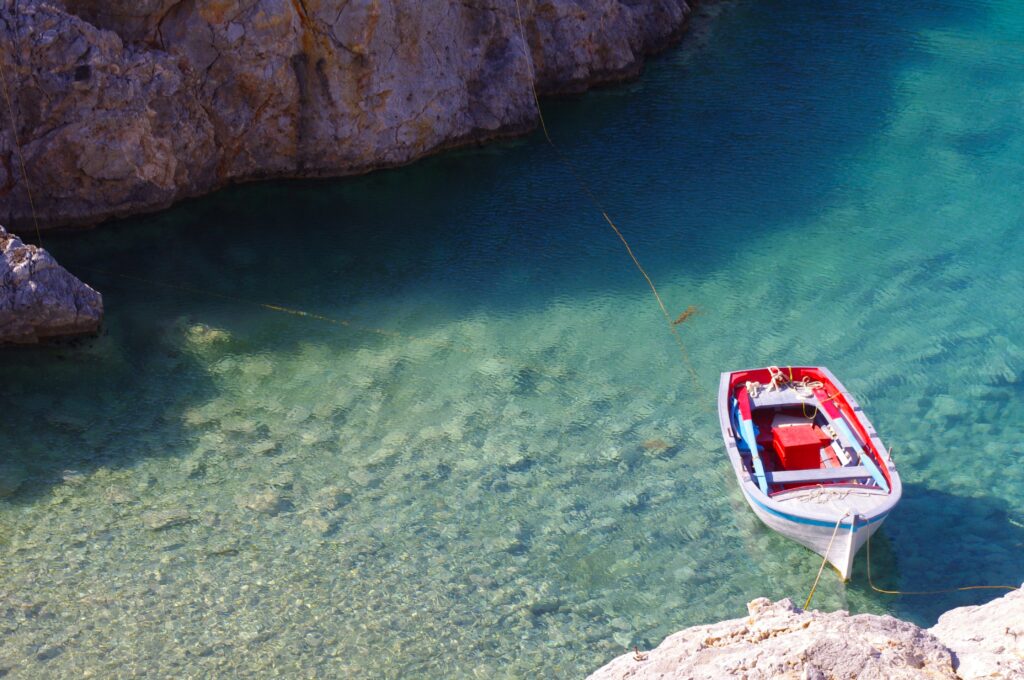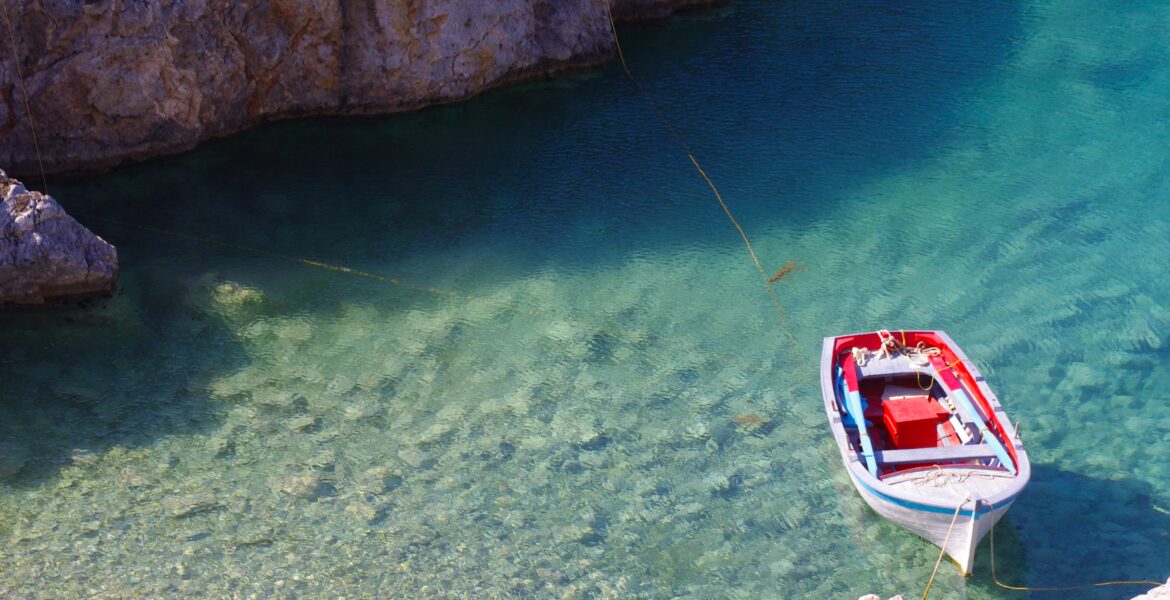Scientists worldwide believe that the island of Antikythera in Greece is worth observing for its uniqueness and potential to help significantly in the fight against climate change.
The picturesque Greek island, which lies on the edge of the Aegean Sea, between Peloponnese and Crete, is home to just 22 people, and its whole area is about 20 km².

Regardless of its small size, Antikythera is famous around the world for being the location where the Antikythera Mechanism was discovered, along with the historical Antikythera shipwreck. The Antikythera Mechanism is believed to be over 2,000 years old and has been called “the world’s first computer”, as it helped Greeks in the ancient times understand the universe around them.

BBC made a trip to Antikythera, and after speaking to a team of scientists and experts, it presented the Greek island as “the place that can give the solution to climate change.”
Currently in the island, there is a group of people from various scientific fields, who have been working since 2017 on the innovative project of the National Observatory of Athens entitled “Pangaea".
The Pangaea project was named after the ancient supercontinent, which was approximately assembled 335 million years ago, and its researchers recently received a grant of 25 million euros from the European Union.
BBC journalist Stav Dimitropoulos wrote that “located where three seas converge, Antikythera is a meteorological melting pot that can provide the scientific community with valuable information on combating climate change.”
Antikythera is particularly worthy of observation for scientists, as particles with completely different origins to each other can be found in the island’s atmosphere. For example, dust from the Sahara, ash from Mount Etna, and even remnants of fires in Canada, which reached Antikythera just 15 days after the great fires of 2018, have been found in the air of the island from time to time.
Vassilis Amiridis, the research director of the National Observatory of Athens and leader of the scientific committee of the Pangaea project, explained that “Antikythera is located at the crossroads of air masses from all continents. This means that large parcels of air from all continents, with the ability to take on the temperature and moisture properties of their respective place of origin, meet exactly above Antikythera. In addition, there is no light pollution, so scientists can observe the skies clearly and easily.”

At the Climate Change Observatory, located in the village of Katsaneviana, experts have been studying the motion of all these different particles and their dispersion in the atmosphere, hoping that in the future they can have a clearer picture of cloud formation and extreme weather phenomena.
Such an achievement would allow scientists to develop better early warning systems for weather changes, but also will help experts predict more accurately how weather is affected by climate change.
“The prevailing scientific belief is that particles move in the atmosphere randomly. We assume that they can move in a straight line, which allows 10% to 20% more radiation to penetrate the atmosphere, reaching the ground," Mr. Amiridis said.
“If our theory turns out to be true – something we will know in a year from now – we may need to review everything we know about climate change,” he added.
Visiting the facilities of the Antikythera Climate Change Observatory, Dimitropoulos wrote on BBC that she was “speechless” by the advanced equipment on the island, most notably the green laser beam detection particles that glow every night in the island's sky.
Over the next three years, researchers plan to install up to 40 new devices that can, among other things, accurately calculate the infrared radiation trapped in the clouds and how climate change affects winds.

Because of the COVID-19 pandemic and the restrictions set by the Greek government for gatherings of big groups of people, researchers visit the island in groups of five per month. There is however, a plan so that in the future, scientists from around the world can stay on the island for longer periods of time, in specially designed “scientific hostels”.
At Antikythera, where the majority of habitants are over the age of 65, representatives of the scientific community have been enthusiastically welcomed, with locals believing that the arrival of new people on their sparsely populated island brings a much-needed renewal.
Eleni Marinou, a climate scientist and member of the Paggea project said that “this rural landscape in the island might soon change, with Paggea’s grand plan of turning the island into a worldwide climate superstation.”
The BBC crew and Stav Dimitropoulos said that when they arrived at the island by boat at 4:30 in the morning, together with a team of researchers, almost all the residents of the houses near the port came to greet them.
“Every new arrival here is like a small celebration, and this tiny island may be worlds apart from Pangaea, the mega-continent, but it continues its role in expanding the horizons of science – this time by writing a whole new chapter in the fight against climate change.” Dimitropoulos concluded.
READ MORE ON GREEK CITY TIMES:
A beautiful Greek island that will pay you to live here
On this day in 1902, the Antikythera Mechanism was discovered


